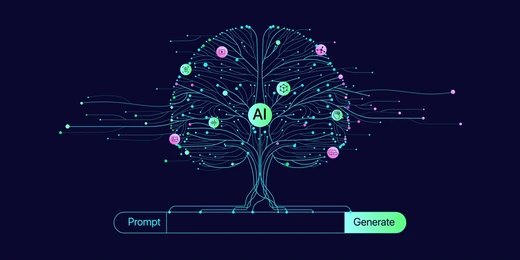
Internet’s Impact: Evolving Lives, Shifting Values
Certainly! The advent of the internet has brought about numerous advancements and conveniences, but it has also led to the loss or transformation of certain aspects of our lives. Here are some things that have changed or been lost in the wake of the internet revolution:

- Privacy:
- Lost Aspect: In the era of social media, online transactions, and data-sharing platforms, our once-cherished personal privacy has become a rare commodity. These digital landscapes constantly engage in the collection and analysis of our personal data, blurring the lines between what’s private and public.
- Lost Aspect: In the era of social media, online transactions, and data-sharing platforms, our once-cherished personal privacy has become a rare commodity. These digital landscapes constantly engage in the collection and analysis of our personal data, blurring the lines between what’s private and public.
- Face-to-Face Communication:
- Lost Aspect: The traditional art of face-to-face communication has taken a considerable hit in the wake of online messaging, video calls, and the omnipresence of social media. While these digital avenues offer convenience, the subtleties, depth, and nuanced interactions of in-person conversations seem to have become casualties of this technological shift.
- Lost Aspect: The traditional art of face-to-face communication has taken a considerable hit in the wake of online messaging, video calls, and the omnipresence of social media. While these digital avenues offer convenience, the subtleties, depth, and nuanced interactions of in-person conversations seem to have become casualties of this technological shift.
- Patience:
- Lost Aspect: The internet has bestowed upon us the gift of instant gratification. From on-demand access to information to lightning-fast communication, our ability to wait patiently has diminished. Waiting for responses, information, or even entertainment has become increasingly uncommon in a world that thrives on immediacy.
- Lost Aspect: The internet has bestowed upon us the gift of instant gratification. From on-demand access to information to lightning-fast communication, our ability to wait patiently has diminished. Waiting for responses, information, or even entertainment has become increasingly uncommon in a world that thrives on immediacy.
- Memory and Knowledge Retention:
- Lost Aspect: The convenience of finding information instantly on the internet has inadvertently affected our reliance on memory. Instead of internalizing and retaining information, the habit of quickly searching for answers online has become the norm. The consequence is a potential decline in our ability to retain and recall information from our own cognitive resources.
- Lost Aspect: The convenience of finding information instantly on the internet has inadvertently affected our reliance on memory. Instead of internalizing and retaining information, the habit of quickly searching for answers online has become the norm. The consequence is a potential decline in our ability to retain and recall information from our own cognitive resources.
- Printed Media:
- Lost Aspect: The shift towards online news, blogs, and digital publications has led to a decline in the once-ubiquitous presence of traditional printed media. Newspapers and magazines, once staples of information consumption, now face the challenge of adapting to a digital landscape where immediacy and accessibility often take precedence over the tangible feel of a physical newspaper.
- Lost Aspect: The shift towards online news, blogs, and digital publications has led to a decline in the once-ubiquitous presence of traditional printed media. Newspapers and magazines, once staples of information consumption, now face the challenge of adapting to a digital landscape where immediacy and accessibility often take precedence over the tangible feel of a physical newspaper.
- Physical Maps and Navigation Skills:
- Lost Aspect: The advent of GPS and navigation apps has drastically altered the way we navigate the physical world. The reliance on physical maps and the cultivation of personal navigation skills have given way to the convenience of turn-by-turn directions on our digital devices. While undeniably practical, this shift has transformed the way we interact with and understand our surroundings.
- Lost Aspect: The advent of GPS and navigation apps has drastically altered the way we navigate the physical world. The reliance on physical maps and the cultivation of personal navigation skills have given way to the convenience of turn-by-turn directions on our digital devices. While undeniably practical, this shift has transformed the way we interact with and understand our surroundings.
- Personal Photo Albums:
- Lost Aspect: The cherished tradition of creating personal photo albums has undergone a transformation in the age of digital photography and social media. Physical albums, once carefully curated and arranged, have been replaced by the instantaneous sharing of photos online. The tangible and sentimental value of flipping through physical photographs now competes with the rapid scrolling through digital galleries.
- Lost Aspect: The cherished tradition of creating personal photo albums has undergone a transformation in the age of digital photography and social media. Physical albums, once carefully curated and arranged, have been replaced by the instantaneous sharing of photos online. The tangible and sentimental value of flipping through physical photographs now competes with the rapid scrolling through digital galleries.
- Local Businesses and Community Interaction:
- Lost Aspect: The ease of online shopping and the dominance of large e-commerce platforms have not only changed the way we shop but have also impacted local businesses. The charm of supporting neighborhood shops and the unique character they bring to communities is challenged by the convenience of online transactions. Additionally, the internet’s influence has altered the dynamics of community interaction, with more people engaging online rather than in local physical spaces.
- Lost Aspect: The ease of online shopping and the dominance of large e-commerce platforms have not only changed the way we shop but have also impacted local businesses. The charm of supporting neighborhood shops and the unique character they bring to communities is challenged by the convenience of online transactions. Additionally, the internet’s influence has altered the dynamics of community interaction, with more people engaging online rather than in local physical spaces.
- Spontaneity:
- Lost Aspect: The internet’s influence extends to the very nature of spontaneity in our lives. Traditional impromptu meet-ups or activities have been somewhat replaced by meticulously organized plans communicated through digital platforms. The element of surprise and the joy of unplanned experiences seem to be diminishing in a world where everything is meticulously scheduled and shared online.
- Lost Aspect: The internet’s influence extends to the very nature of spontaneity in our lives. Traditional impromptu meet-ups or activities have been somewhat replaced by meticulously organized plans communicated through digital platforms. The element of surprise and the joy of unplanned experiences seem to be diminishing in a world where everything is meticulously scheduled and shared online.
- Traditional Job Markets:
- Lost Aspect: The gig economy and the rise of remote work, both facilitated by the Internet, have disrupted the conventional structures of traditional job markets. Job security and the once-standard 9-to-5 work structure are being challenged as more people explore flexible work arrangements and remote employment opportunities. The internet has not only transformed the way we work but has also redefined our expectations and relationships with traditional employment models.
While the internet has undoubtedly transformed the way we live and interact, it’s essential to reflect on the aspects that may have been lost or altered in the process. Balancing the benefits of the digital age with an appreciation for the values of the past is crucial for a well-rounded perspective on the impact of the internet on society.














